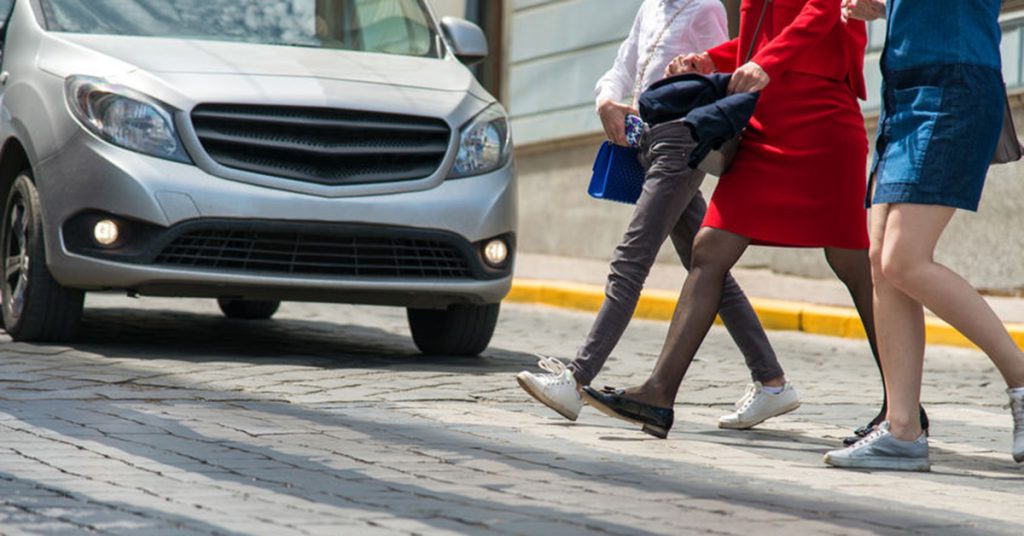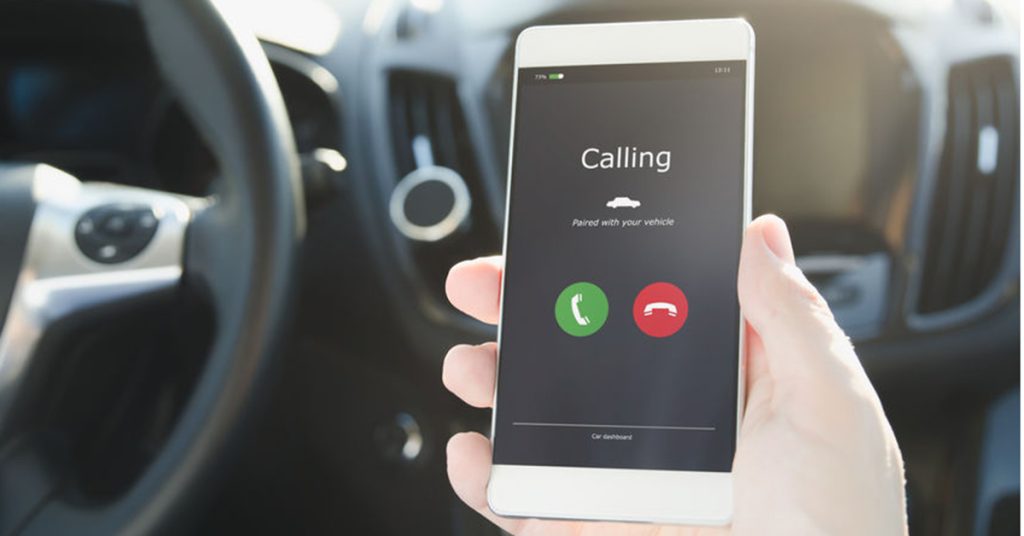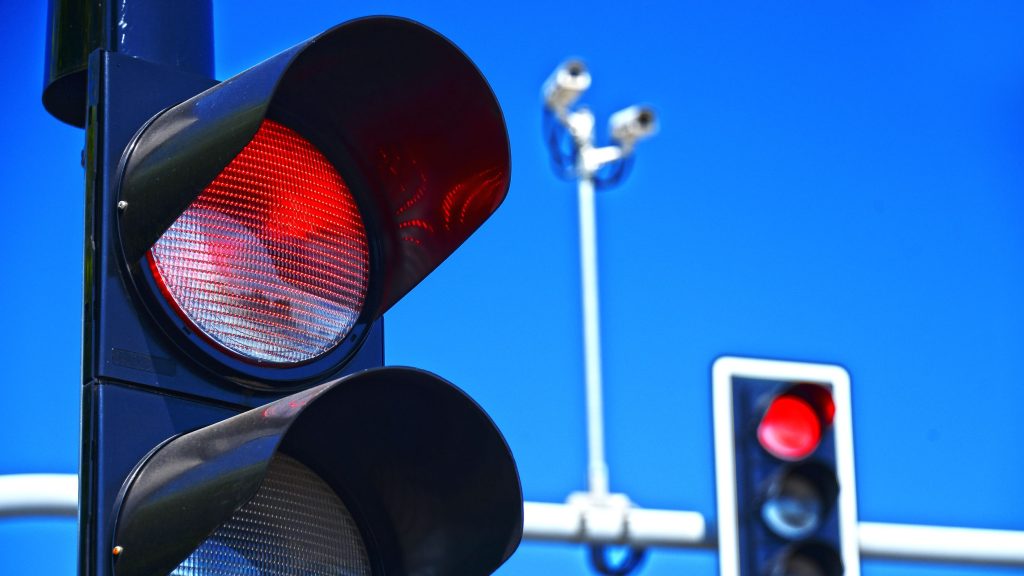Posts Tagged ‘“Car accident lawyers”’
In Massachusetts, Less Traffic Congestion, But Drivers are Speeding Dangerously Down Open Roads

In Massachusetts, traffic is lighter during the COVID-19 emergency, but drivers are being warned to slow down.
During the COVID-19 emergency, Massachusetts residents are getting an unprecedented look at life without traffic congestion. With fewer cars out, there have been fewer accidents. But the drivers who are out have been speeding down open streets. State transportation officials say the high speeds are contributing to traffic fatalities.
The rate of traffic fatalities doubled in April, when traffic dropped by 50 percent on some highways, according the Massachusetts Department of Transportation (or MassDOT). The Boston Globe reported that 28 people died in April, compared to 27 during April 2019, when there was no disruption to traffic.
Speeding and distracted driving have contributed to fatal accidents. According to MassDOT, the fatal crashes resulted in the deaths of drivers, passengers, two motorcyclists and three pedestrians. In Boston, a cyclist was killed by a large truck near Massachusetts and Harrison avenues.
In Boston, Mayor Marty Walsh urged drivers to slow down during his briefing last week. News briefing posted May 1.
“With less traffic, what we’re starting to see is increased speed,” Walsh said. “So the crashes that do happen have been more severe due to the high speed impacts. Even an increase of four to five miles per hour can make a big difference in terms of injuries and possible death.”
The MassDOT did not provide overall crash data for last month. Preliminary data shows two-thirds of crashes happened on local roads.
When traveling in their communities, drivers must remember that they share the road with cyclists and pedestrians. Right now, there are more people out, of all ages. It is essential to stop at crosswalks, yield to pedestrians and drive slowly.
It is also essential to watch for cyclists and practice situational awareness, especially when turning at intersections. Remember that cyclists are allowed to travel in bike lanes, on the right side of the road or in the middle of the lane if necessary for safety. Because cyclists may need to change their lane (for example, to avoid an illegally parked car), it is important to provide cyclists with ample room to make safe decisions.
Just How Slowly Should You Drive?
As a first step, commit to follow the speed limit or travel even slower when necessary. By doing so, you leave yourself more time to stop and prevent a crash before it happens.
It is important to remember that you control your speed and research has found fatal injuries are less likely at lower speeds. Consider a driver who was traveling at 40 mph and hit a pedestrian. There is a 73 percent likelihood that the driver will cause the pedestrian severe injury or death, according to the Vision Zero safety campaign. At 30 mph, the risk for severe injury or death is reduced to 40 percent. At 20 mph, there is a 13 percent likelihood of causing severe injury or death.
Fewer Drivers, Fewer Tickets and Fewer Car Accidents
The Boston Globe reported on Massachusetts traffic activity on April 30th. As the state responds to COVID-19, there has been a dramatic decline in traffic, citations and accidents.
From March 23 to April 26, more than 2,600 car accidents were reported across Massachusetts. 12,000 car accidents were reported during the same period in 2019.
Another measure of driving activity is usually traffic citations or moving violations, such as speeding and parking violations. But during the first three weeks of April 2020, as residents stayed home and law enforcement responded to COVID-19, Massachusetts police departments issued 95 percent fewer tickets for moving violations compared to the same period in 2019.
While traffic remains light overall, Massachusetts State Police have also observed a “significant surge” in drivers speeding more than 100 mph, according to the Globe. Specifically, drivers have also complained about speeding on the MassPike. Now, the agency plans to increase patrols at random times and places.
Breakstone, White & Gluck – Boston Car Accident Lawyers
Free Legal Consultation
Breakstone, White & Gluck represents those who have been injured by the negligence of others in Massachusetts. Our personal injury attorneys provide experienced representation after motor vehicle accidents, including car accidents, truck crashes, pedestrian accidents and bicycle collisions.
Learn your legal rights after an accident. For a free legal consultation, contact Breakstone, White & Gluck. Call 800-379-1244 or 617-723-7676 or use our contact form.
Massachusetts Hands-Free Law Update: Fines Can Begin April 1, 2020

The Massachusetts hands-free driving law bans this action. Fines start today, April 1, 2020.
As of today April 1, Massachusetts police departments can start to issue citations and fines to drivers who violate the Massachusetts hands-free driving law. We encourage you to follow the Massachusetts COVID-19 “Stay at Home” advisory. But if you have to go out, you can help yourself drive more safely and avoid a fine by checking that your car is set up for hands-free mode. Even better? Read this update, but turn off your cell phone while driving. Many of us are exhausted and out-of-routine. Focus on the roads and what you need to get done, so you can get back home.
So far, many drivers are still picking up phones, despite the new law. During the initial grace period from Feb. 23-Mar. 31, police issued 4,500 written warnings across Massachusetts, according to a state official interviewed by WGBH. The official said drivers must become aware of both the law and that police are watching.
“…the police officers I’ve talked to seem to say that everyone who is pulled over says, “Yes, I’ve heard about it. Sorry. My mistake,” said Jeff Larason, director of highway safety at the Massachusetts Executive Office of Public Safety. (Listen to the WGBH segment in full).
Massachusetts passed a texting while driving law in 2010 but lawmakers spent nearly 10 years debating the handheld cell phone ban.
The Massachusetts hands-free driving law was passed by the Massachusetts Legislature in November 2019 and quickly signed by Gov. Charlie Baker on Nov. 29. To help drivers get ready, the state granted an initial grace period. Larason told WGBH 4,500 drivers had received written warnings (broadcast date: March 13). The Boston Globe reported State Police had issued 578 warnings to drivers, in just the first week. On Cape Cod, local police reported 150 verbal or written warnings in the first week (Source: South Coast Today via Cape Cod Times).
What the law allows and bans:
- The law states drivers cannot use any electronic device, including mobile telephones, unless the device is being operated in hands-free mode.
- Drivers can only touch cell phones and mobile phones once to activate hands-free mode.
- Cell phones must be properly mounted to the windshield, dashboard or center console and not impede with operation. This is the only way drivers are allowed to use GPS or voice to text technology such as Bluetooth.
- Drivers are specifically not allowed to touch phones for texting and emailing. Use of apps, video or Internet is also prohibited.
- Drivers who are 18 and younger are not allowed to use cell phones behind the wheel. Hands-free is illegal and can result in violation of their Massachusetts Junior Operator’s License.
- You may be stopped. But you are not allowed to pick up your phone at red lights or stop lights.
- You can pick up your cell phone and make a call if you are in a stationary position, outside a travel lane or bicycle lane.
- There is also an exemption for emergency professionals who need to pick up the phone for calls and those calling 911. 911 calls must be taken seriously. The state advises drivers to make every attempt to pull over before calling 911 – even if you are in hands-free mode.
Violations of the Massachusetts Hands-Free Driving Law
Police in Massachusetts can now start issuing tickets. Here are the penalties:First offense: $100 fine.
Second offense: $250 fine and distracted driving education.
Third offense: $500 fine and distracted driving education.
With a third offense, you may face an insurance surcharge.
Related:
Massachusetts hands-free driving law, Mass.gov
Breakstone, White & Gluck – Boston Personal Injury Lawyers: 800-379-1244
With more than 100 years combined experience, Breakstone, White & Gluck specializes in representing plaintiffs in personal injury cases involving car accidents, truck accidents, pedestrian accidents and bicycle accidents. Our attorneys have extensive experience handling cases for clients injured by negligent use of cell phones and texting while driving. We represent clients across the state of Massachusetts in car accident cases, including in Boston, the North Shore, the South Shore and Cape Cod.
We are open and working remotely for our clients during the state’s COVID-19 advisories. If you have been injured, we are providing free legal consultations at 800-379-1244 or 617-723-7676. You can also use our contact form.
Massachusetts Considers Red Light Cameras to Catch Traffic Offenders

Massachusetts lawmakers are considering legislation to allow communities to install red light cameras.
In Massachusetts, drivers are getting a strong warning to slow down this week as the state Senate debates red light cameras.
The state Senate is scheduled to debate legislation proposed by Sen. William Brownsberger and redrafted by the Ways and Means Committee.
The proposed bill would grant Massachusetts cities and towns new authority to install automated camera systems to capture vehicles that violate traffic laws at intersections, according to The Boston Globe. The goal is safer roads; the AAA Foundation for Traffic Safety has reported red light cameras have contributed to a 14 percent reduction in traffic deaths at intersections.
Drivers who violate traffic laws could end up receiving a citation and fine, without ever being stopped by a police officer. The fine would be $25 and tied to the vehicle registration. The person listed on the vehicle registration will receive the traffic citation, not necessarily the person driving at the time. Violations would not count toward Massachusetts auto insurance surcharges.
This is an important proposal and drivers, cyclists and pedestrians want to watch this week. Many, many traffic crashes happen in intersections, when drivers speed through lights, veer out of their lanes or neglect to give cyclists and pedestrians enough space. At the same time, there are many concerns about privacy and how broad laws should reach.
Beyond Massachusetts, 20 states have passed laws allowing red light cameras, according to the Governors Highway Safety Association. These states stand divided on authority; 11 states fully permit use while 9 states only allow use in specific situations.
Massachusetts Red Light Camera Legislation
Under the Massachusetts proposal, communities could install one traffic camera for every 2,500 residents. Signs must be posted and visible warning drivers approaching the intersection.
To address privacy concerns, communities would be directed to capture photos without identifying the driver or passengers in the vehicle, or any of their belongings. Photographs would be destroyed within 48 hours.
Drivers can be cited for failure to stop for a red light, making an illegal turn at a red light or speeding. Drivers may be cited for traveling at least 5 miles per hour over the speed limit. There will be an appeals process for drivers.
The law should not impact green light or yellow light laws. Lawmakers wrote in language that says a vehicle can be across the line during a yellow light, according to the Globe report.
Communities will be compensated for the costs of installation and operating the camera system. The state’s Transportation Trust Fund will receive the rest of the revenue from citations.
History of Opposition for Red Light Cameras in Massachusetts
Massachusetts has long opposed the idea of red light cameras due to privacy concerns. More than a decade ago, individual communities attempted to lobby state legislators for the right to install traffic cameras, without success.
But now, growing traffic safety concerns has rekindled proposals in Massachusetts and across the country.
- Last year, the AAA Foundation for Traffic Safety reported red light running crashes have reached a 10-year high in the U.S.
- Fatal red light car crashes have increased 28 percent since 2017.
- About 35 percent of the victims were the drivers who thought they could race through the red light.
AAA Recommendations for Red Light Camera Use
AAA recommends communities install traffic cameras at intersections with demonstrated patterns of red light violations or crashes. Before launching red light cameras, communities should have established overall traffic safety and engineering plans, AAA says. Law enforcement should directly supervise red light cameras and drivers should be given fair notice with traffic signs and other outreach.
Breakstone, White & Gluck – Free Legal Consultation
Breakstone, White & Gluck provides aggressive and experienced representation to those injured or killed by the negligence of others. Our attorneys have been consistently recognized for their results for our clients, including as Top 100 New England Super Lawyers, Top 100 Massachusetts Super Lawyers and by Best Law Firms as a Tier 1 Firm in Personal Injury and Medical Malpractice in the Boston Metropolitan region.
If you have been injured, learn your legal rights. Contact our car accident lawyers today at 800-379-1244 or 617-723-7676. You can also use our contact form.
State of Massachusetts Releases Education Materials on New Hands-Free Driving Law

Hand-held cell phone use becomes illegal in Massachusetts on Feb. 23, 2020, when the new hands-free law takes effect.
The state of Massachusetts has published a new web page and pamphlet on the new hands-free driving law, which takes effect on Feb. 23rd.
While Massachusetts passed a texting while driving ban in 2010, it was the final New England state to enact hands-free legislation in November. When the new law at last takes effect, drivers will be prohibited from using cell phones and electronic devices, unless they are in hands-free mode or they have to call 911 for an emergency.
Distracting driving is a serious safety threat on the roads, causing 9 deaths and more than 1,000 injuries each day in U.S. traffic crashes, according to the CDC. This goes beyond just cell phone use. Think of it as any activity which takes your eyes off the road, your mind off the road or your hands off the wheel.
Texting while driving and cell phone use cause many injuries each year. If the news stories have not deterred you, the new Massachusetts hands-free law should; it is about to become much easier for police to identify drivers who are using cell phones illegally.
Penalties for violating the Massachusetts hands-free law:
For a driver’s first offense, there is a $100 fine. The second offense carries a $250 fine and drivers must complete a distracted driving education program. Third and subsequent offenses can lead to a $500 fine and drivers will have to attend the education program. At this point, drivers can also face an insurance surcharge.
What becomes illegal under the Massachusetts hands-free law:
No Holding Your Cell Phone. Cell phones must be mounted or installed in your vehicle before you use hands-free technology or voice-to-text communication. Drivers can only touch their cell phones to make an initial swipe to activate hands-free mode.
No Touching Your Cell Phone Screen. Drivers cannot touch cell phones to email, check social media or watch video. All other Internet use and app use is also banned.
Get Your GPS Ready. GPS is a critical tool for many drivers. Going forward, be aware that you can only activate your GPS from an electronic device which is installed in your vehicle or properly mounted on the dashboard.
No Cell Phone Use at Red Lights. You can only pick up your cell phone if your car is stationary and safely outside the travel lane. Hand-held cell phone use at stop signs and red lights is a violation. Along with drivers, cyclists are also banned from using hand-held electronic devices.
Visit the state of Massachusetts web page to learn more.
Our Final Note
Massachusetts drivers must continue to use caution under the new hands-free law. Even if you follow the law, hands-free doesn’t mean distraction- or accident-free.
Free Legal Consultation – Boston Personal Injury Lawyers
Breakstone, White & Gluck is a Boston personal injury law firm with extensive experience handling Massachusetts car accident claims for those injured by negligent driving. If you have been injured, our attorneys are here to advise you of your rights to file a claim against the driver or another party who may be at fault. For a free legal consultation, call Breakstone, White & Gluck at 800-379-1244 or 617-723-7676. You can also use our contact form.
Massachusetts Passes Hands-Free Driving Law
 Massachusetts has finally approved distracted driving legislation. Gov. Charlie Baker signed on Monday, establishing New England as a hands-free driving zone.
Massachusetts has finally approved distracted driving legislation. Gov. Charlie Baker signed on Monday, establishing New England as a hands-free driving zone.
According to The Boston Globe, the new distracted driving law will take effect on Feb. 23, 2020. Massachusetts police officers will issue warnings until the end of March, then citations will begin. This transition period is meant to help drivers get used to the new law. Become familiar with Bluetooth and other “hands-free” technologies now, and if you plan to use an electronic device for navigation, purchase a mount for your windshield or dashboard.
Until now, most drivers have been able to pick up cell phones to talk in Boston and across Massachusetts. However, under the 2010 texting while driving ban, drivers cannot text, read emails or use social media. This has helped deter some drivers, but overall, not enough without a handheld cell phone ban.
Come next year, Massachusetts drivers can only use cell phones under limited circumstances. Drivers can use electronic devices on “hands-free” mode (though they do get a single-swipe to activate or de-activate the “hands-free” mode). As we mentioned, they must use Bluetooth or a similar “hands-free” technology and mount navigation devices.
Police officers can stop drivers as a primary offense, which is more leeway than they have in enforcing seat belt use. Officers will be required to collect data – including age, race and gender – when they issue a warning or citation. The state will use this data to monitor potential racial profiling by police departments.
The new Massachusetts distracted driving law brings notable consequences. These alone are good financial motivators for putting down your cell phone.
Under the new law, drivers will be fined $100 for the first offense, $250 for the second offense and $500 for the third offense (and any subsequent offense). Second-offenders have to participate in a driver safety course. Drivers can also face an insurance surcharge.
Safety is the most important point. Cell phone use is responsible for more than 1 of 4 car crashes, according to the National Safety Council. Distracted drivers killed 3,166 people across the U.S. in 2017, according to the National Highway Traffic Safety Administration. These are hard numbers to hear.
Massachusetts now joins every other New England state in improving hands-free cell phone legislation. Maine was the last state to approve legislation this past summer. According to the National Conference of State Legislature, 20 states already have laws which ban handheld cell phone use, so Massachusetts could be the 21st.
Read the law: AN ACT REQUIRING THE HANDS-FREE USE OF MOBILE TELEPHONES WHILE DRIVING, 2019 Mass. Acts 122
Boston Car Accident Lawyers – About Breakstone, White & Gluck
At Breakstone, White & Gluck, our Boston car accident lawyers have over 100 years combined experience and provide expert investigation into car crashes involving negligent cell phone use. We represent clients who have been injured by negligent driving across Massachusetts, including in Boston, Cambridge, Somerville, Quincy and Braintree. South of Boston, our attorneys have represented numerous clients, including those injured in Brockton, Plymouth and Cape Cod, as well as in Framingham, Worcester and north of Boston, Salem, Peabody, Newburyport and Saugus.
If you have been injured, learn your legal rights. Call 800-379-1244 or 617-723-7676 or use our contact form.
In the Battle for Safety, Cambridge Lowers Speed Limits to 20 MPH

Drivers, double check your speed next time you visit Cambridge. In mid-November, the city plans a slow down to 20 mph on most city-owned streets. The city says, when in doubt, go 20 mph.
The City of Cambridge announced the new 20 mph speed limit this week, a decision made in response to residents’ concerns about speeding vehicles and the risk for pedestrian accidents and injuries to cyclists. Cambridge follows Boston and Somerville in pursuing 20 mph speeds on certain city streets. Each city has a VisionZero safety campaign and is working to eliminate traffic fatalities.
Cambridge first lowered speed limits from 30 to 25 mph on most city-owned streets in December 2016. The Massachusetts Legislature granted cities and towns this authority earlier that year with passage of the Municipal Modernization Law. Specifically, communities were given the authority to lower speeds from 30 to 25 mph in locally-owned thickly settled areas.
In response, dozens of communities adopted 25 mph speed limits to reduce the risk of accidents. Few have pursued 20 mph – yet.
But according to the City of Cambridge’s announcement, the law allows communities to establish 20 mph “safety zones” in the interest of public safety. Cambridge will be installing 660 new “safety zone” signs.
The City of Somerville has also taken advantage of this provision of the law. Last we knew, the City of Boston – which was the first to pursue 25 mph, then 20 mph speeds – was still working on the issue. Here is our last update on Massachusetts speed limits (though please note: there may have been additional action since then).
Check a street: Not every street in Cambridge will be impacted. Larger streets like Brattle Street and Cambridge Street will stick with current speeds. Roads under state management – such as Memorial Drive – will not change. You can check out the map here: www.cambridgema.gov/20mph.
It’s worth noting Cambridge’s squares – including Harvard Square, Lechmere Square and Porter Square – won’t see any change. The city lowered speeds to 20 mph back in early 2018.
Cambridge’s Influence on Traffic Safety
Cambridge has been ambitious in making traffic safety improvements. In addition to lowering speeds, the city announced a new City Safety Ordinance earlier this year. The city made the commitment to add permanent separated bike lanes whenever it reconstructs roads identified in the Cambridge Bicycle Plan. With full build out, this would give the city an impressive 20 miles of protected bike lanes. Cambridge Bicycle Safety, a local group, said this could reduce 40 percent of Cambridge bicycle accidents, the one which occur outside intersections.
The city, while committed, does concede there may be cases when these bike lanes aren’t possible due to road conditions.
The bottom line is Cambridge has such a strong influence on transportation in the Boston region, just by virtue of its geography. It borders Somerville, Boston, Arlington, Belmont and Watertown. And because it’s one of the largest cities in Massachusetts, its work to promote safety will be watched across the state and nationally.
Free Legal Consultation – Boston Pedestrian Car Accident Lawyers
Breakstone, White & Gluck has represented accident victims in Boston, Cambridge and across Massachusetts since 1992. Our attorneys are dedicated to our clients and our results. We provide the prompt and thorough investigation required after pedestrian car accidents and bicycle crashes.
If you have been injured by a driver, we offer a free legal consultation to advise you on whether you may pursue a financial claim for your injuries and other losses. Consult one of our personal injury attorneys today at 800-379-1244 or 617-723-7676. You can also use our contact form.
Massachusetts Parents: Reminders About Child Passenger Safety Seats

When properly used, child passenger safety seats can reduce the risk of fatal accidents by 71 percent for infants and by 54 for toddlers, according to the NHTSA.
Buying a car seat takes careful research. But most parents agree: the real hardship comes after you try to buckle your child up safely. While car seats are essential, they are anything but easy to use. And if you use them incorrectly, your child is left without proper protection.
All 50 states have laws requiring car seats for children. In Massachusetts, parents must secure their children in a federally-approved seat until they reach age 8 or over 57 inches tall. This is critical because car accidents are a leading cause of death for children ages 1 to 13, according to the National Highway Traffic Safety Administration (NHTSA). For every 32 seconds in 2017, a child under 13 was involved in a passenger vehicle crash.
We are writing about car seats because the NHTSA and other organizations recently observed Child Passenger Safety Week nationwide from Sept. 15 to Sept. 21. If you missed it, we are sharing a few resources and tips. If you are a parent, don’t lose hope. There are a lot of resources out there. The best place to start is with your local police department. Many police departments offer free car seat inspections year-round by appointment.
Selecting a Safe Car Seat
The NHTSA offers a free online resource to help parents select the right car seat. Parents should follow the manufacturer’s recommendations on age, weight and height recommendations for selecting car seats. NHTSA Find & Compare Car Seats
Types of Car Seats
Rear-facing seats. The NHTSA encourages children to use rear-facing seats up until age 3 or they reach the top of the manufacturer’s height and weight requirements. Always check your product manual for this information.
For the first 8 or 9 months, children should ride in rear-facing infant seats. The NHTSA then advises a move to a convertible or all-in-one seat, and that parents keep children rear-facing as long as they can.
As we said, it’s important to read your product manual and the manufacturer’s instructions. In past years, the recommendation was to keep your child in a rear-facing car seat until age 2. But new research has led to a new recommendation. In 2018, the American Academy of Pediatrics announced children can remain in rear-facing seats until they reach 40 pounds or more. While every child is different, this often comes after a child’s second birthday.
Forward-facing seats. Next, children will move into a harness and tether seat. This type of seat limits their forward movement if the car crashes. There are three types of forward-facing seats: convertible, combination and all-in-one.
Booster seats. These give children a boost so they can sit taller and safely use seat belts.
Without booster seats, seat belts can seriously injure children, causing abdominal bruising and injuries. Compared to seat belt use alone, booster seats are shown to reduce the risk for injury by 45 percent in children ages 4 to 8, according to the Centers for Disease Control and Prevention (CDC).
As with the other car seats, there are several types of booster seats: booster seats with high backs, backless booster seats, combination seats and all-in-on-seats.
In 2008, Gov. Deval Patrick signed the Massachusetts Child Passenger Safety Law, adding the booster seat requirement until children reach age 8 or 57 inches tall. At that point, children can move to regular seat belts in the back seat.
Making this transition earlier can leave your child without proper protection and vulnerable to injury. Unfortunately, parents are making this mistake. About 26 percent of children were moved to seat belts too early, according to the NHTSA.
Car Seat Registration and Expiration
Make sure to register your car seat with the manufacturer so the company can contact you if there is a recall. Car seats are frequently recalled and these can be widespread recalls, including mislabeling or defective parts. In 2014, Graco recalled 3.7 million car seats due to defective buckles, disrupting families across the country.
Remember, car seats have expiration dates. Look for the sticker at the bottom. The expiration date should be about six years from the manufacture date.
Never use a car seat beyond the expiration date. While the seat may appear to be in good condition, the plastic and other parts wear from daily use and exposure to sun, making the product less effective in protecting your child.
About Breakstone, White & Gluck – Boston Personal Injury Attorneys
Breakstone, White & Gluck has over 100 years combined experience representing those who have been injured and killed by the negligence and wrongdoing of others, including by car accidents. In 2013, we launched our Project KidSafe campaign to offer education and safety resources for children and families in Massachusetts. Learn more about Our Attorneys and our Project KidSafe campaign.
If you have been injured by someone else’s negligence, learn your legal rights from one of our attorneys. For a free legal consultation, call 800-379-1244 or 617-723-7676. You can also use our contact form.
In Massachusetts, Debate Continues on Ignition Interlock Devices for First-Time Drunk Drivers

The Massachusetts Legislature is being asked to reconsider a ignition interlock law for first-time OUI offenders.
Many of us recall when Massachusetts passed Melanie’s Law to increase penalties for drunk drivers. This was a landmark bill aimed at preventing drunk driving injuries and deaths.
Yet today, when it comes to drunk driving laws, Massachusetts now falls behind some expectations. While ignition interlock devices are mandatory for repeat drunk drivers, they are not required for first-time offenders.
Each year, Mothers Against Drunk Driving (MADD) asks Massachusetts lawmakers to extend the requirement to first-time offenders. According to the advocacy organization, 119 people are killed each year in Massachusetts drunk driving crashes and that drunk driving fatalities account for 31 percent of all drunk driving deaths.
In January 2019, Gov. Charlie Baker and Lt. Karyn Polito included the measure in the administration’s road safety bill. According to the State House News Service, a hearing was held on the bill, but it remains to be seen if we will hear more this year. There was more than one bill filed this year, but no update since the summer.
Massachusetts Drunk Driving Laws
Massachusetts lawmakers passed Melanie’s Law in 2005 and this took effect in 2006. Named for the 13-year-old victim of a drunk driver, Melanie’s Law increased penalties for those charged with operating a motor vehicle under the influence of alcohol or controlled substances. It also increased jail time in drunk driving accidents resulting in serious injury and death.
Melanie’s Law was the state’s introduction to the ignition interlock device, a small unit designed to detect alcohol on one’s breath. The device is electronically connected to the vehicle’s ignition and won’t allow drivers to operate if they are intoxicated. Over the past 13 years, ignition interlock devices have been installed for more than 17,000 drivers, according to Mass.gov.
According to MADD, ignition interlock devices stopped drivers 31,845 times in Massachusetts between December 1, 2006 and December 1, 2016.
State by State: Ignition Interlock Laws
The national debate over ignition interlock devices dramatically changed in 2013. This is when the National Highway Traffic Safety Administration (NHTSA) released new model guidelines encouraging states to pass requirements mandating use of ignition interlock devices for first-time offenders. States were also urged to establish a minimum period of time for use.
According to the National Conference for State Legislatures, 28 states and the District of Columbia now have mandates for all offenders. These include New Hampshire, Vermont and Connecticut. The ignition interlock law is slightly different in Maine. Rather than mandating use, first-time offenders are eligible to get their license back earlier (after 30 days) if they keep the ignition interlock installed for the remainder of their sentence.
Like Massachusetts, Rhode Island requires use of ignition interlock devices for repeat offenders, though there are differences in the state laws.
Federal Law: Ignition Interlock
MADD isn’t the only organization pursuing ignition interlock devices. The Chicago Tribune reported a former NHTSA administrator was before Congress this summer, urging members to pass a law mandating automakers build vehicles with passive ignition interlock devices. According to the official, the technology has been available since 2006 and wider use could save up to 7,000 lives each year.
Breakstone, White & Gluck – Boston Car Accident Attorneys
At Breakstone, White & Gluck, our Boston car accident lawyers specialize in investigating all types of car accidents, including those caused by drunk drivers. With more than 100 years combined experience, Breakstone, White & Gluck has represented numerous drivers who have been struck by intoxicated drivers. In drunk driving claims, the injured person may be entitled to compensation from the at-fault driver’s auto insurance policy. Additional compensation may also be available through other sources, including restaurants, bars and other establishments.
Learn your legal rights. For a free legal consultation, contact us at 800-379-1244 or 617-723-7676 or use our contact form.
Motorcyclists Face High Risks for Injury and Death in Truck Crashes
It was painful to learn of the New Hampshire truck crash which killed seven motorcyclists and injured three others last weekend. That one crash could injure so many is heart-breaking and we send our deepest condolences to the families.
The horrific accident happened Friday night in the community of Randolph, New Hampshire. The motorcyclists belonged to the Jarheads MC, a motorcycle club for Marine Corps veterans and close friends, according to The Boston Globe. The group was reportedly traveling to their annual meeting eastbound on Route 2 when they were struck by the truck traveling west. Reports said the truck crossed the double yellow line.
By Monday, the driver – a 23-year-old Springfield, Mass. man – had been charged with seven counts of negligent homicide in the case. Massachusetts State Police took Volodoymyr Zhukovskyy into custody at his home. He was then taken to Springfield District Court, where he waived extradition to New Hampshire.
New Hampshire authorities are still investigating the cause of the crash, but there are questions about whether Zhukovskyy should have been driving at all following his arrests on OUI charges last month and back in 2013, according to news reports. Meanwhile, his employer, Springfield-based Westport Transport is said to be cooperating with police.
While this type of collision causing so many injuries is rare, motorcycle crashes are not, especially during the summer in New England. Per mile, motorcyclists are 28 times more likely than passenger car occupants to die in a crash, according to the Insurance Information Institute. In fact, Massachusetts authorities report they have responded to four fatal motorcycle crashes between Saturday night and Monday morning.
Some of the crashes involved a single motorcyclist. This was the case in New Bedford, Belchertown and Andover. But in Westport, a preliminary investigation shows the motorcyclist was traveling westbound on Route 177 when there was a collision with a Ford Ranger turning onto Tickle Road. The driver of the Ford Ranger stayed on the scene and was said to be cooperating with police.
In addition to local authorities, motorcycle accidents should be investigated by an experienced motorcycle crash attorney. In some cases, another driver may not appear to be involved. But drivers who speed, stop short, pass a motorcycle illegally or fail to check their blindspot cause motorcyclists to crash all the time. These are known as no-contact crashes.
When trucks hit motorcyclists, injuries can be more severe as we saw in New Hampshire. Truck companies have a responsibility to train drivers how to operate near motorcyclists. Truck drivers must also take care to properly load vehicles, especially if they are carrying equipment and materials on open open trailers.
At Breakstone, White & Gluck, we urge drivers to observe the following:
- Motorcyclists have the right to operate on the same roads as drivers and must follow the same traffic laws and signals.
- Provide motorcyclists room. Travel several car lengths behind motorcyclists.
- Motorcyclists are permitted to ride two abreast in a lane in Massachusetts and New Hampshire. (Source: The Massachusetts Motorcycle Manual and AmericanMotorcyclist.com).
- Motorcyclist are not permitted to travel between traffic lanes (or split lanes).
- Accidents can happen when drivers fail to look before they turn. In fact, this was the cause of 44 percent of all motorcycle crashes in 2013, according to esurance.com.
- Attempt to make eye contact with motorcyclists at intersections. Many motorcyclists do not have self-canceling turn signals like car and you cannot trust a motorcyclist will turn until you see it.
- Check your mirrors and blindspots often.
- Some drivers have trouble driving in the rain. Expect the same from motorcyclists. Be patient and give them more room.
- Do not speed through traffic lights or make quick unexpected movements at traffic lights and intersections.
- Do not speed on any roads.
- Do not overload trucks and trailers. Secure equipment and materials behind a closed door or under secure ratchet straps, bungee tarp straps or other appropriate equipment.
- Do not attempt to pass motorcyclists unless you must. While you are allowed to do so in Massachusetts, the motorcyclist may not be expecting the move and surprises can lead to accidents and falls.
- Never drive when you are tired; do not drive when you are normally sleeping or getting ready for bed.
- Never drink and drive.
- Remove all distractions from your car, including cell phones. Hold heavy conversation and limit snacks and drinks.
Massachusetts Motorcycle Safety Tips
If you are a motorcyclist, please read our past blog, “Massachusetts Motorcycle Safety Tips.” The article can be a resource if you are just starting to ride, looking to become licensed or have questions about your Massachusetts auto insurance policy.
About Breakstone, White & Gluck
The Boston car accident lawyers at Breakstone, White & Gluck specialize in representing those injured in motorcycle accidents caused by the negligence of other drivers. If you or a loved one has been injured, learn your legal rights for seeking compensation. For a free legal consultation, contact us at 800-379-1244 or 617-723-7676 or use our contact form.
Hands-Free Cell Phone Law Proposed in Massachusetts

Hand-held cell phone use would become illegal under new legislation proposed by the Massachusetts’ governor’s office.
Many of us expected Gov. Charlie Baker and Lt. Gov. Karyn Polito would file legislation to limit drivers to hands-free cell phone use this year. But the Baker-Polito Administration went much further last week when it filed, “An Act Relative to Improving Safety on the Roads of the Commonwealth.” In announcing the legislation, the administration reported more than 15,000 people were seriously injured in Massachusetts traffic accidents between 2012 and 2016. Another 1,820 people were killed, including 14 road workers.
The Massachusetts Legislature now has a great deal to consider in coming months. Because these proposals will impact us all, we encourage you to follow the media coverage and share your thoughts with your local legislators and town officials.
Cell Phones. In 2010, Massachusetts banned texting while driving. There have been similar proposals, but no action on handheld cell phones. Meanwhile, distracted driving accidents have increased, claiming 3,450 lives in 2016, according to the NHTSA.
The Baker-Polito proposal would require drivers who use electronic devices to go “hands-free” and make use of hands-free driving equipment, such as Bluetooth. Drivers would have to use voice commands instead of reaching for hand-held cell phones. The proposal does allow “a single tap or swipe to activate, deactivate or initiate hands-free mode.”
If this proposal is approved, Massachusetts would be the 16th state to have a hands-free cell phone law, joining all the New England states.
Primary Seat Belt Enforcement. According to the GHSA, 34 states have primary seat belt laws for drivers and front-seat passengers.
Massachusetts has a secondary seat belt law, meaning police officers cannot simply pull a motor vehicle over for a seat belt violation. A police officer must first observe another moving violation, such as speeding or running a red light.
A primary enforcement law for seat belts has been a hard sell in Massachusetts. But we urge you and your family to use the debate as a reminder to wear a seat belt every time you ride. According to the NHTSA, seat belts saved an estimated 14,668 lives in traffic accidents in 2016. Wearing a seat belt is an easy choice we can all make to protect ourselves.
Road Workers. The Massachusetts Department of Transportation would be granted authority to lower speed limits in construction zones. Fines would double in areas where workers are.
Truck Sideguards. In 2014, the Boston City Council approved a truck sideguard ordinance for all city-contracted trucks – the first in the nation. The governor’s proposal builds on this, mandating sideguards for all state-owned trucks and vehicles over 10,000 pounds. Along with sideguards, trucks must be equipped with convex and cross-over mirrors to increase driver’s visibility. If approved, trucks would have to be equipped by Jan. 1, 2020. All state and municipal contractors would have to do the same by 2022.
The sideguards are intended to protect the area between the truck’s front and back wheels, blocking it off to cyclists and pedestrians who can be caught underneath. Massachusetts has seen numerous cyclists who have been seriously injured or killed by these types of truck accidents.
Electric Scooters. The proposal would start regulating electric scooters like bicycles and allow scooter rentals to move ahead in local communities. This has been a point of contention in the Boston area as bikeshare and rideshare companies are eager to start scooter rentals here. Cities have argued that scooters are illegal because they don’t have directional signals as stated under current state law.
Ignition Interlock Devices. When drivers are convicted of operating under the influence or drunk driving in Massachusetts, they are permitted to apply for a hardship license. With this proposal, anyone who applies for a hardship license must use an ignition interlock device for a minimum of six months. The proposal also clarifies that the Registry of Motor Vehicles has authority to impose penalties if drivers attempt to drive after consuming alcohol or tamper with a device.
About Breakstone, White & Gluck – Boston Car Accident Lawyers
With more than 100 years combined experience, Breakstone, White & Gluck specializes in representing individuals injured in car accidents, truck accidents and other catastrophic collisions. If you have been injured, learn your rights at 800-379-1244 or 617-723-7676. You can also use our contact form.








